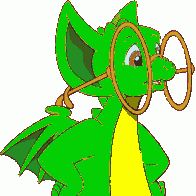Is-Ought and Fact-Value
Triessentialism answers two of Hume's most interesting dilemmas, the fact-value distinction and the is-ought problem. Both of these highlight how emotions are a differeny type of thing from either the physical reality or from logic.
Is and ought are different on a fundamental level. Is describes physical reality, the (logical) words to describe it, and possibly the (emotional) reaction to it. Ought describes only an emotion, either an Identity (at a certain time in the future, this is what will be) or an Imperative. Imperatives are the emotions behind words like "should" and "ought", as well as "want", "need", and "must". "You ought to behave!" might be restated as "I want you to behave" or "you need to behave". "I'd like to" is a cautious or polite form of "I want".
Facts and values are also fundamentally different. Facts are logical descriptions of other things, while values are the emotional equivalent. Computers, which have no emotions, cannot say whether a thing is good or bad, only whether it is true or false, accurate or flawed. Animals cannot say whether a thing is true or false, only whether it considers it a good or a bad thing.
The tricky part is that you can state a fact about an emotion, just as you can state a fact about a thing or another fact. I can state in English that those Wikipedia articles are both true and good, but I've just stated in one sentence both a theoretically verifiable fact and a subjective valuation.
Is and ought are different on a fundamental level. Is describes physical reality, the (logical) words to describe it, and possibly the (emotional) reaction to it. Ought describes only an emotion, either an Identity (at a certain time in the future, this is what will be) or an Imperative. Imperatives are the emotions behind words like "should" and "ought", as well as "want", "need", and "must". "You ought to behave!" might be restated as "I want you to behave" or "you need to behave". "I'd like to" is a cautious or polite form of "I want".
Facts and values are also fundamentally different. Facts are logical descriptions of other things, while values are the emotional equivalent. Computers, which have no emotions, cannot say whether a thing is good or bad, only whether it is true or false, accurate or flawed. Animals cannot say whether a thing is true or false, only whether it considers it a good or a bad thing.
The tricky part is that you can state a fact about an emotion, just as you can state a fact about a thing or another fact. I can state in English that those Wikipedia articles are both true and good, but I've just stated in one sentence both a theoretically verifiable fact and a subjective valuation.

